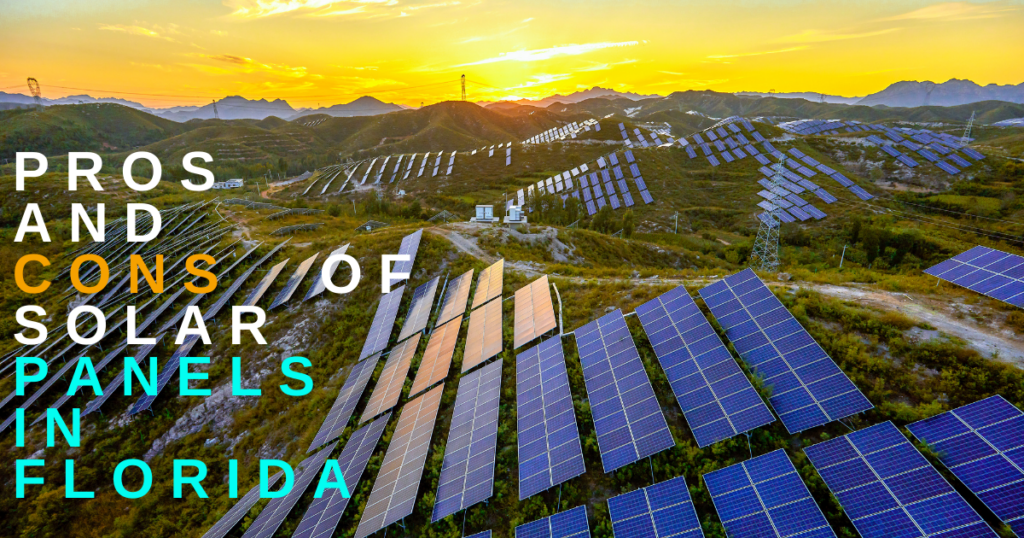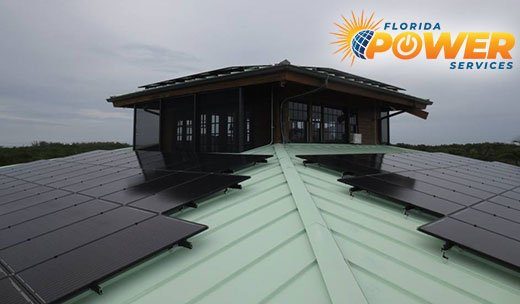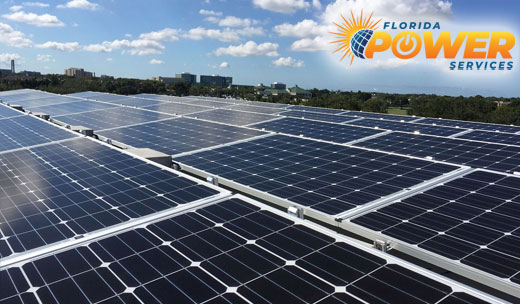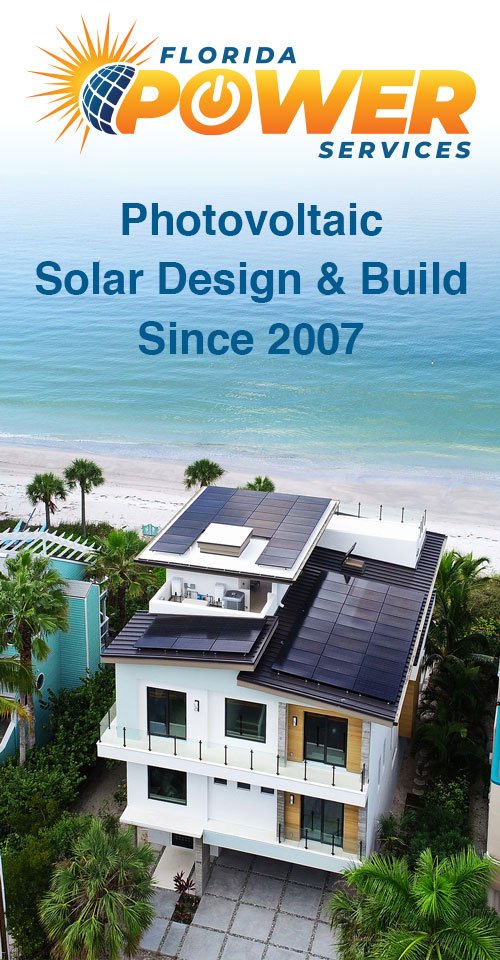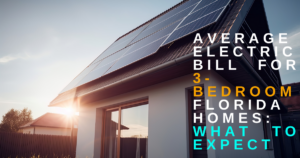Solar energy is rapidly growing in popularity, especially in places like Florida, where sunshine is abundant. As more Floridians consider transitioning to renewable energy, many are weighing the pros and cons of solar panels in Florida to make an informed decision. Like any major investment, going solar comes with its benefits and potential challenges. Below, we’ll explore both sides to help you decide if it’s the right choice for your home or business.
Pros of Solar Panels in Florida
1. Abundant Sunshine: Ideal for Solar Energy
One of the most obvious benefits of solar panels in Florida is the state’s plentiful sunshine. Known as the Sunshine State for a reason, Florida receives around 230 sunny days per year, making it an ideal location for solar energy. The more sun your panels receive, the more electricity they can produce, which means you can generate significant amounts of energy to power your home. Solar panels in Florida can operate at high efficiency due to this natural advantage. Learn more about how solar panels work in Florida.
2. Significant Energy Savings
One of the key reasons people go solar is the potential to save money on their energy bills. Electricity costs in Florida can be high, especially in the summer months when air conditioning use skyrockets. Installing solar panels allows homeowners to generate their own electricity, reducing their reliance on traditional power sources. Over time, this can lead to substantial savings. In many cases, solar panels can help you eliminate most, if not all, of your electric bill. With the right system in place, you could even generate excess energy that can be sold back to the grid through net metering, further increasing your financial return. At Florida Power Services, we specialize in creating customized solar solutions that maximize savings for our clients.
3. Tax Incentives and Rebates
Another significant advantage of installing solar panels in Florida is the various tax incentives and rebates available to homeowners. The federal government offers the Investment Tax Credit (ITC), which allows homeowners to deduct a percentage of the cost of installing solar panels from their federal taxes. As of 2024, this credit is 30%, making solar installations more affordable. Additionally, Florida offers property tax exemptions for solar energy systems, meaning the value added by solar panels to your home is not taxed. Many local utilities also provide rebates or incentives for solar installations. Learn more about the solar incentives in Florida.
4. Environmentally Friendly
Switching to solar power helps reduce your carbon footprint by relying on clean, renewable energy rather than fossil fuels. Solar energy doesn’t produce greenhouse gas emissions, making it a sustainable alternative to traditional electricity sources. In a state vulnerable to the effects of climate change, like Florida, choosing solar power is a meaningful way to contribute to environmental sustainability. By installing solar panels through Florida Power Services, you’re not just saving money—you’re helping to preserve the planet for future generations.
5. Increased Property Value
Homes with solar panel installations are often seen as more attractive to buyers, as they promise lower utility bills and are a sign of energy efficiency. Studies have shown that homes with solar panels tend to sell for more than comparable homes without them. In Florida’s competitive real estate market, adding solar panels can be a smart investment, increasing your home’s value and marketability. With Florida Power Services, our high-quality installations can enhance the long-term value of your property.
6. Energy Independence
One of the most overlooked benefits of solar panels is the sense of energy independence they provide. You become less reliant on utility companies and immune to rising energy costs. Additionally, solar power paired with a battery storage system ensures your home remains powered during outages—a critical advantage in Florida, where hurricanes and severe weather can disrupt the grid. Florida Power Services offers energy storage solutions, allowing you to maximize the benefits of your solar investment and ensure continuous power when you need it most.
Cons of Solar Panels in Florida
1. High Initial Cost
While solar panels save money in the long run, the upfront cost can be a deterrent for some homeowners. Solar panel installation involves the cost of the equipment, installation fees, and potentially adding a battery storage system. Though prices have dropped significantly in recent years, a typical residential solar system in Florida can range between $10,000 and $25,000, depending on the size and complexity of the installation. However, with financing options, tax incentives, and the long-term savings solar provides, many homeowners find the investment worthwhile. Florida Power Services works with clients to find the best financing options and ensures maximum savings through federal and local incentives.
2. Weather and Climate Factors
While Florida enjoys abundant sunshine, the state also experiences frequent storms and hurricanes. These extreme weather conditions can pose risks to solar panels, potentially causing damage or requiring maintenance. Modern solar panels are designed to withstand harsh weather, including hurricane-force winds, but the potential for damage can still concern homeowners. Florida Power Services installs durable, high-quality solar panels that are built to handle Florida’s weather conditions, ensuring long-term performance even in tough environments.
3. Roof Suitability
Not every home in Florida is an ideal candidate for solar panel installation. If your roof is old, shaded by trees, or not oriented toward the sun, it may not be able to support an efficient solar energy system. In some cases, homeowners may need to invest in roof repairs or replacements before installation, adding to the upfront cost. Additionally, some homeowners’ associations (HOAs) may have regulations regarding solar panels. However, Florida law largely protects homeowners’ rights to install solar panels, regardless of HOA restrictions. Learn more about solar installation requirements in your area.
4. Energy Storage Costs
While solar energy can significantly reduce or eliminate your reliance on the grid, it doesn’t always generate power when you need it most—like during the night or on cloudy days. To fully capitalize on solar energy, many homeowners opt for battery storage systems that allow them to store excess energy for later use. However, these systems can be expensive, adding several thousand dollars to the cost of a solar installation. Florida Power Services offers tailored energy storage solutions to ensure you get the most out of your solar system, but it’s essential to factor in the additional cost.
5. Payback Period
While solar energy provides long-term savings, it takes time to recoup the initial investment. The payback period for solar panels in Florida typically ranges from 6 to 10 years, depending on the system’s size, energy usage, and available incentives. While this is a relatively short time compared to the system’s lifespan (25+ years), it may feel like a long wait for some homeowners before they see the full financial benefits.
Conclusion
There are clear pros and cons of solar panels in Florida, but for many, the advantages far outweigh the challenges. With abundant sunshine, generous tax incentives, and the potential for significant energy savings, Florida is one of the best places to go solar. However, it’s essential to weigh factors such as upfront costs and roof suitability when considering an installation.
At Florida Power Services, we pride ourselves on offering high-quality solar solutions tailored to meet the unique needs of Florida homeowners. Whether you’re looking to lower your energy bills, increase your property value, or reduce your environmental impact, we’re here to guide you every step of the way. Contact us today for a free consultation and discover how solar can work for you.
For more information on solar energy and our services, visit Florida Power Services.

